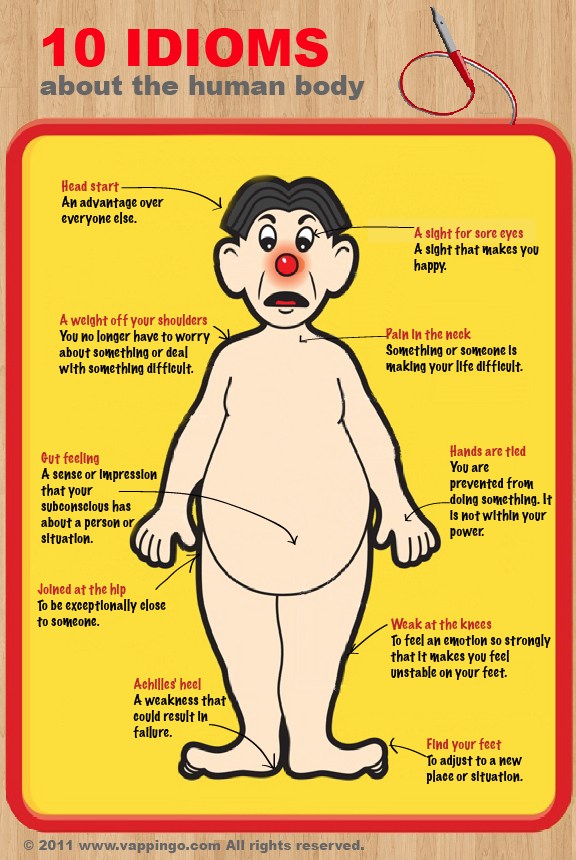
noun
- an expression whose meaning is not predictable from the usual meanings of its constituent elements, as kick the bucket or hang one’s head, or from the general grammatical rules of a language, as the table round for the round table, and that is not a constituent of a larger expression of like characteristics.
- a language, dialect, or style of speaking peculiar to a people.
- a construction or expression of one language whose parts correspond to elements in another language but whose total structure or meaning is not matched in the same way in the second language.
- the peculiar character or genius of a language.
- a distinct style or character, in music, art, etc.: the idiom of Bach.
noun
- a group of words whose meaning cannot be predicted from the meanings of the constituent words, as for example (It was raining) cats and dogs
- linguistic usage that is grammatical and natural to native speakers of a language
- the characteristic vocabulary or usage of a specific human group or subject
- the characteristic artistic style of an individual, school, period, etc
1580s, “form of speech peculiar to a people or place,” from Middle French idiome (16c.) and directly from Late Latin idioma “a peculiarity in language,” from Greek idioma “peculiarity, peculiar phraseology,” from idioumai “to appropriate to oneself,” from idios “personal, private,” properly “particular to oneself,” from PIE *swed-yo-, suffixed form of root *s(w)e-, pronoun of the third person and reflexive (referring back to the subject of a sentence), also used in forms denoting the speaker’s social group, “(we our-)selves” (cf. Sanskrit svah, Avestan hva-, Old Persian huva “one’s own,” khva-data “lord,” literally “created from oneself;” Greek hos “he, she, it;” Latin suescere “to accustom, get accustomed,” sodalis “companion;” Old Church Slavonic svoji “his, her, its,” svojaku “relative, kinsman;” Gothic swes “one’s own;” Old Norse sik “oneself;” German Sein; Old Irish fein “self, himself”). Meaning “phrase or expression peculiar to a language” is from 1620s.
A traditional way of saying something. Often an idiom, such as “under the weather,” does not seem to make sense if taken literally. Someone unfamiliar with English idioms would probably not understand that to be “under the weather” is to be sick. (See examples under “Idioms.”)
 Liberal Dictionary English Dictionary
Liberal Dictionary English Dictionary




